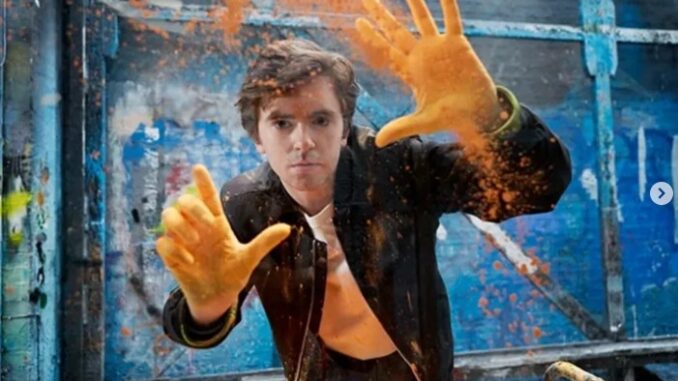
Since its debut, The Good Doctor has sparked conversations about autism representation on television. At the center of it all is Freddie Highmore’s portrayal of Dr. Shaun Murphy, a brilliant surgeon with autism and savant syndrome. While many viewers have praised his performance, others have questioned whether an actor without autism can truly capture the experience authentically. But what does someone on the spectrum actually think about it? One autistic cast member from the show, who has firsthand experience both in the industry and with autism itself, recently shared their perspective on Highmore’s portrayal—and their reaction might surprise you.
A Performance That Resonated
Despite early skepticism, this autistic actor revealed that Highmore’s performance felt deeply authentic to them. They noted that his portrayal went beyond stereotypes, capturing not just the surface-level traits of autism but also the emotional depth, struggles, and triumphs of someone navigating a neurotypical world. “I was worried at first,” they admitted. “A lot of shows get it wrong—they make autism seem like a robotic condition or a list of quirks. But Freddie brought something real to Shaun. He got it right.” The actor highlighted specific moments that felt particularly genuine, such as Shaun’s difficulty with sudden changes, his need for structure, and the way he processes emotions differently from those around him.
The Power of Subtlety
One of the aspects they appreciated most was Highmore’s use of subtle, non-verbal communication. Instead of exaggerating mannerisms, he portrayed Shaun’s differences in a way that felt organic. His body language, eye contact (or lack thereof), and even his voice modulation all contributed to a layered and realistic character. “There’s this misconception that all autistic people are the same,” the actor explained. “But we’re just as diverse as neurotypical people. What Freddie did was create an individual—Shaun isn’t ‘autism personified.’ He’s just Shaun.”
Why Authenticity Matters
Autism representation in media has long been a sensitive subject. Many past portrayals have relied on outdated or harmful stereotypes, leading to misconceptions about what it really means to be autistic. For this cast member, The Good Doctor wasn’t just another medical drama—it was a step toward greater understanding. “The show didn’t try to ‘cure’ Shaun or make him ‘overcome’ his autism. It showed that he was brilliant because of the way he thinks, not in spite of it. That’s powerful.”
The Debate Over Casting
Of course, the conversation about whether neurotypical actors should play autistic characters is ongoing. Some argue that giving autistic actors these roles would provide even greater authenticity. However, this cast member acknowledged that while representation in casting is important, what mattered most to them was the care and respect Highmore put into his performance.
“If the role had gone to an autistic actor, that would have been amazing. But I can’t deny that Freddie did his homework. He treated the role with respect, and it shows.”
A Lasting Impact
As The Good Doctor nears its conclusion, its impact on autism awareness remains undeniable. For many autistic viewers, seeing a character like Shaun Murphy on a mainstream network show has been a rare and meaningful experience. “People always ask me if I see myself in Shaun. The truth is, I see parts of myself, but I also see something bigger—proof that autism stories can be told with heart, depth, and complexity.” Freddie Highmore may not be autistic himself, but according to someone who is, his portrayal was more than just convincing—it was a breakthrough.
